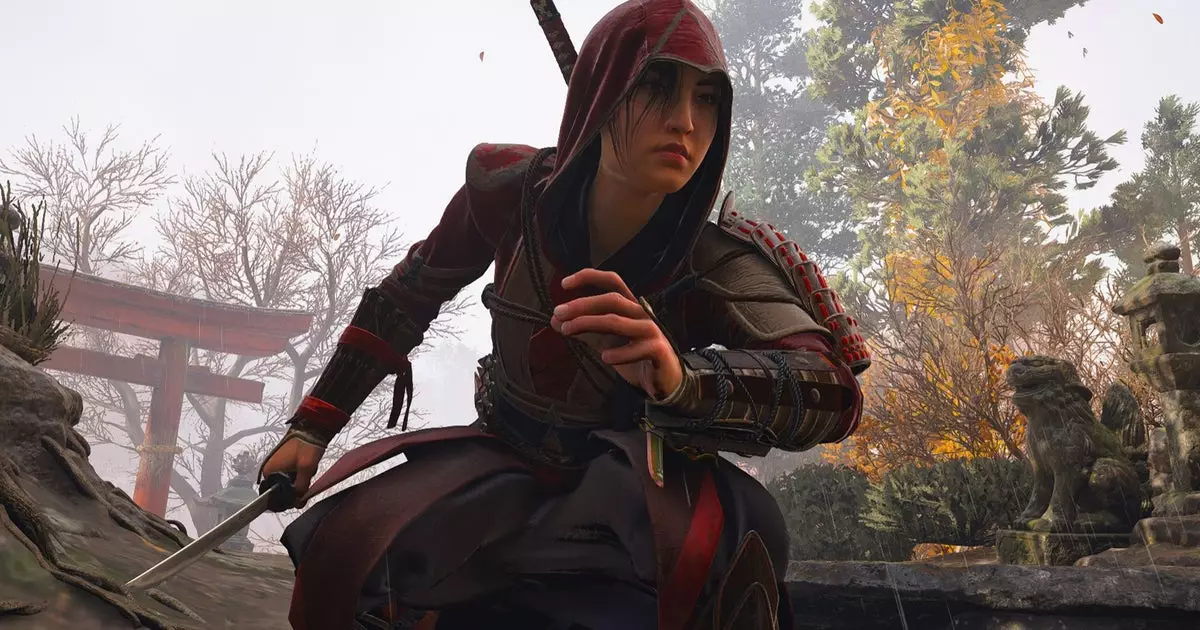Ubisoft, the French powerhouse behind beloved franchises like Assassin’s Creed and Far Cry, finds itself at a crossroads as it confronts a myriad of challenges. CEO Yves Guillemot recently articulated a pivotal moment for the company, especially in light of the latest installment in the Assassin’s Creed series, “Shadows.” The game’s release has exceeded expectations and serves as a testament to the franchise’s enduring appeal. Yet, despite this success, Ubisoft’s woes are far from over. The company is burdened by a financial performance that fell short of its ambitious goals during a tumultuous year in the gaming landscape.
As an industry characterized by rapid innovation and fierce competition, gaming is not for the faint-hearted. Ubisoft’s experiences reflect broader market dynamics that have left many within the industry scrambling to adapt. Guillemot’s remarks underscore the pressure facing companies, with mixed performance across their portfolio and the need to innovate continually. The pressure is palpable, leading the company to undertake a substantial reduction in costs, with a target of at least €100 million.
Major Changes and Cost-Cutting Measures
The restructuring of Ubisoft is no small feat, and it entails significant adjustments, including substantial downsizing. Reports indicate a reduced workforce by approximately 3,000 since late September of the previous year. While layoffs can be a disturbing prospect, they are often deemed necessary in the corporate sphere to streamline operations and align resources with strategic goals. Guillemot’s focus on maintaining ‘discipline’ in operations may well be a euphemism for the harsh reality of a labor force that is needed to ensure financial viability, revealing the human cost behind these corporate goals.
In addition to the layoffs, the establishment of a new subsidiary in partnership with Tencent aims to focus on its most profitable properties. This is a strategic move that allows Ubisoft to generate new revenue streams while potentially reducing risk. However, the real question looms — can the company successfully navigate its transformation without alienating its core player base?
The Promise of Assassin’s Creed Shadows
Following the initial excitement surrounding “Assassin’s Creed Shadows,” Guillemot highlights that the decision to delay the game’s launch was strategic, providing the opportunity to polish it for optimal reception. Evidently, this strategy has paid off, resulting in impressive launch day revenues that provide a glimmer of hope amid bleak financial forecasts. This reflects a significant lesson in the art of patience and the understanding that quality can sometimes be more valuable than speed.
Shadows serves as an emblem of potential renewal for Ubisoft, as Guillemot emphasizes the largely positive reactions from both long-time fans and newcomers alike. This indicates that the company still possesses the creative power to engage audiences, but it must carefully tread the path of development to ensure continued success without backtracking on past missteps.
Ambitious Plans Ahead
Looking forward, Ubisoft is set to unveil a new framework to further enhance its game offerings, particularly in their leading franchises like Assassin’s Creed, Far Cry, and Rainbow Six. The journey is not without its obstacles, as Guillemot suggests bottlenecks in the release schedule will persist through to the financial years 2025 and 2026. However, those years are expected to yield a wealth of content that may free the narrative-driven experiences from the constraints of previous titles.
A slide presentation conveyed during a recent earnings call reflected a dual commitment: to craft compelling single-player adventures while simultaneously developing rich live service experiences. This balancing act is critical for Ubisoft, as it seeks to cater to a diverse player demographic that values both immersive storytelling and dynamic multiplayer engagement.
A Call for Financial Accountability
Interestingly, while discussions of cost-cutting and layoffs dominate the conversation at Ubisoft, one aspect remains notably absent: accountability at the executive level. Gamers and stakeholders alike have a right to question why leadership salaries are not being scrutinized with the same rigor as employee headcounts. Although Guillemot has previously taken pay cuts amidst disappointing performance, the trend does not appear to be sufficiently widespread.
This absence of equity in sacrifice raises questions about the sustainability of the company’s turnaround strategy. If Ubisoft can embrace a culture of accountability at all levels, the chances for genuine success could broaden significantly, fostering a sense of transparency and trust that the company desperately needs.
Ubisoft stands at a pivotal junction, navigating through its challenges with both innovative strategies and societal responsibilities, and how well it manages these initiatives could very well reshape its future in the gaming world.

